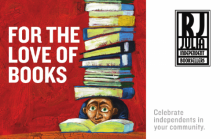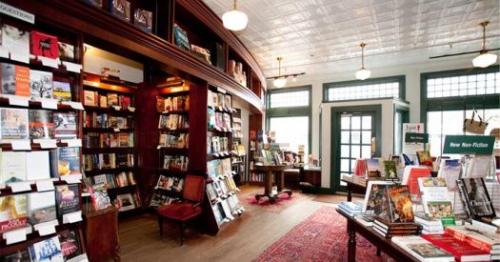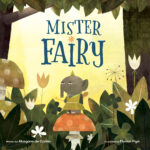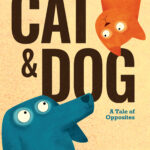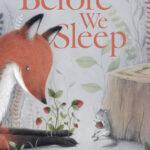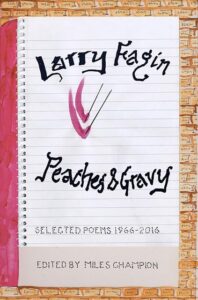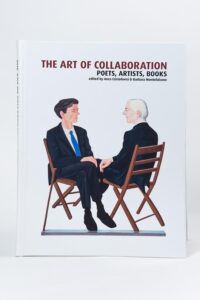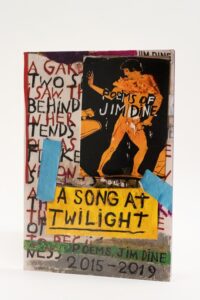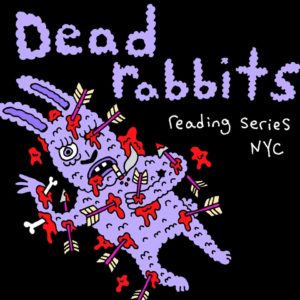Publishing Talks: Interview with George Slowik, Jr. of Publishers Weekly
February 23, 2022 by David
Filed under Publishing History, PublishingTalks
 Publishing Talks began as a series of conversations with book industry professionals and others involved in media and technology, mostly talking about the future of publishing, books, and culture. I’ve spent time talking with people in the book industry about how publishing is evolving in the context of technology, culture, and economics.
Publishing Talks began as a series of conversations with book industry professionals and others involved in media and technology, mostly talking about the future of publishing, books, and culture. I’ve spent time talking with people in the book industry about how publishing is evolving in the context of technology, culture, and economics.
Some years ago, this series broadened to include conversations that go beyond the future of publishing. In an effort to document the literary world, I’ve talked with a variety of editors, publishers and others who have been innovators and leaders in independent publishing in the past and into the present.
These conversations have been inspirational to me on many levels. I have gotten to speak with visionaries and entrepreneurs, as well as editors and publishers who have influenced and changed contemporary literature and culture. I’ve also had the opportunity to speak with a number of friends and colleagues I have met over the many years I have been in the book business.
2022 is the 150th anniversary of Publishers Weekly, the essential trade magazine of the book industry. The magazine was founded in 1872, and the fact that it has not just survived, but thrived for most of the many years it has been published says something about both the book industry and the people who have been part of its trade media.
Just as it has done for so many magazines, the digital era has meant change for Publishers Weekly, and credit is due to current ownership for guiding it successfully through very difficult times. Those of us who have been around the book business for a long time remember PW as it is ubiquitously called, when it had a lot more pages than it does today, and when it was literally the only way to get news about publishing and bookselling in one reliable place. Now the print magazine is relatively short, most of us consume it digitally, and the magazine’s products and revenues are radically different from what they were just a few years ago, including a variety of newsletters, podcasts and other digital products.
George Slowik, Jr. is the owner of the magazine’s parent company, PWxyz, LLC. Slowik had been the publisher of the magazine from 1990-1993 and later ran the excellent magazine, American Prospect, and then in 2010 he bought it from its then owner, Reed Business Information, which was in the process of selling off its entire portfolio of publications.
When Publishers Weekly was originally launched it was the bibliographical source commercial publishers used to list their forthcoming titles for booksellers. The book business was relatively small at that time, with most publishers clustered in a few cities, especially New York and Boston. Over the many years it was in business, the magazine expanded to provide news and stories about the publishing industry, and today, while the industry and the media that serves it have grown, it still is an essential source of title data, publishing over 9,000 book reviews annually at a time when book reviews are more needed than ever.
In this podcast we talked about the magazine’s history, the creation of the digital archive of its entire run, activities around the 150th anniversary year, the past, present and future state of publishing, and much more.
Even if you are not an active participant in the book industry, the history of publishing is valuable to know about as it is in many ways the history of modern culture. You can learn more about Publishers Weekly and sign up for their free email newsletters, at their website. 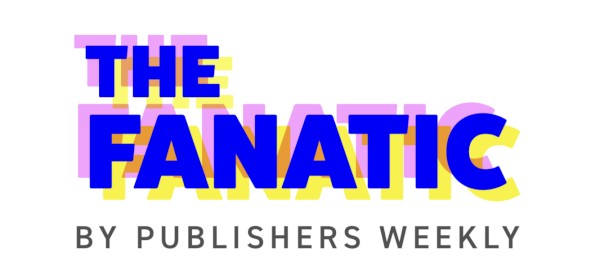
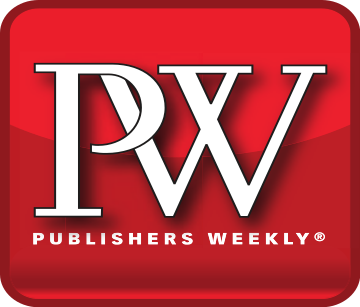

Podcast: Play in new window | Download
Publishing Talks: Interview with Jeff Deutsch of Seminary Co-op Bookstores
October 12, 2021 by David
Filed under PublishingTalks, The Future
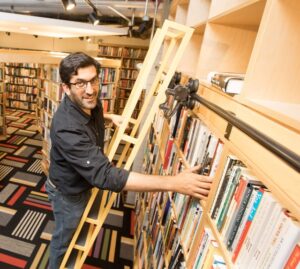 Publishing Talks began as a series of conversations with book industry professionals and others involved in media and technology, mostly talking about the future of publishing, books, and culture. I’ve spent time talking with people in the book industry about how publishing is evolving in the context of technology, culture, and economics.
Publishing Talks began as a series of conversations with book industry professionals and others involved in media and technology, mostly talking about the future of publishing, books, and culture. I’ve spent time talking with people in the book industry about how publishing is evolving in the context of technology, culture, and economics.
Some time back, this series broadened to include conversations that go beyond the future of publishing. In an effort to document the literary world, I’ve talked with a variety of editors, publishers and others who have been innovators and leaders in independent publishing in the past and into the present.
These conversations have been inspirational to me on many levels. I have gotten to speak with visionaries and entrepreneurs, as well as editors and publishers who have influenced and changed contemporary literature and culture. I’ve also had the opportunity to speak with a number of friends and colleagues I have met over the many years I have been in the book business.
This week’s podcast is one I am really excited about. Jeff Deutsch is the director of Chicago’s Seminary Co-op Bookstores, which calls itself the first not-for-profit bookstore in the United States whose mission is devoted to bookselling (there are other nonprofit bookstores of course, generally components of literary centers, like Beyond Baroque in Venice, California, Woodland Pattern in Milwaukee, and Writers and Books in Rochester, NY are examples).
Last spring I read a report of a Book Industry Study Group panel that included Jeff, and what he talked about immediately caught my attention. Deutsch was reported to have said that the model of bookselling we’ve inherited needs to be rethought: just facilitating more sales, more efficiently, is not the way for bookstores to survive. A bookstore that actually means something to readers will need to carry a deep backlist and to spend time helping readers discover new voices, new texts.
During that panel Deutsch said, “The publishing world and distributors—what you value is not our ability to sell books,” because independent bookstores can never sell in the same volume as Amazon. “Yet we all know how important bookstores are,” he said. As publishers and booksellers once knew, developing readerships for books and authors takes time and devotion that have been boiled out of the entire process now.
Jane Friedman’s outstanding book industry newsletter Hot Sheet compared Jeff’s approach to the Slow Food movement (I think that idea makes sense – I wrote a manifesto for publishers a few years ago on the idea of Slow Publishing, but never developed it enough to publish). Nina Barrett, owner of Bookends & Beginnings in Illinois (which has filed a lawsuit against Amazon), also on the BISG panel said “I think it’s like Alice Waters talking for decades about a sustainable food ecosystem and ultimately revolutionizing the food industry that way. That’s the point we’re at.”
As Jane pointed out, “independent booksellers will lose every time if they base their worth on the mere transactional value of selling books. His stance—that bookselling has a deeper meaning and cultural value—is indeed how boutique and online retailers outside of the Amazon ecosystem are positioning themselves for success.”
Deutsch also said, “We should figure out models that support the work that we’re trying to do, not shoehorn this other model of retail that is really just about buying and selling and not about culture….We all have vocational awe, but couldn’t we have vocational awe and still make a decent living?”
This conceptual framework resonates with me and I think is worthy of much more discussion. Why shouldn’t there be a nonprofit bookselling sector to promote literary and other noncommercial books and authors, just as there is a nonprofit theater? Why should we continuously try to fit a crucially important culture activity into a commercial model, and always fail?
I hope that hearing Jeff talk about this concept will help stimulate further discussion and concrete action. Please feel free to comment and if you are interested in helping, please be in touch.
Connect to the Seminary Co-op Bookstores website here.
Before joining the Co-op Deutsch was the director of stores for the Stanford Bookstore Group and prior to that managed the Cal Student Store at the University of California, Berkeley.
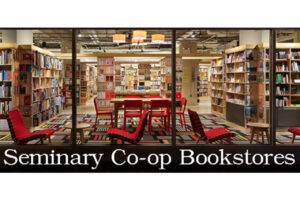
Podcast: Play in new window | Download
Publishing Talks: Interview with Ben Fox of Shepherd.com
September 20, 2021 by David
Filed under PublishingTalks, The Future
 Publishing Talks began as a series of conversations with book industry professionals and others involved in media and technology, mostly talking about the future of publishing, books, and culture. I’ve spent quite a bit of time over the years talking with people in the book industry about how publishing has evolved in the context of technology, culture, and economics.
Publishing Talks began as a series of conversations with book industry professionals and others involved in media and technology, mostly talking about the future of publishing, books, and culture. I’ve spent quite a bit of time over the years talking with people in the book industry about how publishing has evolved in the context of technology, culture, and economics.
Some time back, this series broadened to include conversations that go beyond the future of publishing. In an effort to document the literary world, I’ve talked with a variety of editors, publishers, booksellers, innovators, and leaders in publishing from the past into the present.
These conversations have been inspirational to me in many ways. I have gotten to speak with visionaries and entrepreneurs, as well as editors and publishers who have influenced and changed contemporary literature and culture. I’ve also had the opportunity to speak with a number of friends and colleagues I have met over the decades I have been in the book business.
Everyone in the book business recognizes the challenge of matching books to readers and vice versa. Search and discovery are the defining issues of this era of vast abundance and creativity in books and all media. There have been any number of efforts to address these challenges that go far beyond what any individual author or publisher can accomplish. One new effort that is trying to address the problem of online book discovery is called Shepherd. Ben Fox is the founder of this book search and recommendation website which he describes as being “Like browsing the best bookstore in the world.”
Like so many others who have become involved with the book publishing industry, he was motivated by a love of books and a desire to replicate the experience of browsing in a physical bookstore online. It’s a simple enough proposition in theory, but in practice, we know that nothing is easy for start ups, and especially so for start ups in the book industry.
I learned about Shepherd from an author I have worked with who has become a friend. Since I believe we need to foster creativity and innovation in every aspect of the book delivery chain, I wanted to talk to Ben to find out more about what he is doing, how he is doing it, and how he feels he can make this effort a success.
In a fairly short time, Shepherd has built a robust offering, with book lists of all kinds, and direct connections on the site to a large number of active authors.
Visit Shepherd.com and see for yourself what Ben Fox is doing. It would be interesting to me to hear what you think of it. Does Shepherd help you find books you might not otherwise have discovered? Does meeting authors online make a difference to your sense of their books and your willingness to buy and read them? Does Shepherd succeed in creating an online book browsing experience that matches what a great bookstore can do?
“I love walking around the bookstore and browsing until something grabs my attention. I want to bring that experience online. I want to help readers bump into books they would otherwise not find. And, help them follow their curiosity to new places.
And, I want to help authors meet more readers. Authors illuminate our world, take us on faraway journeys, and entertain us. There is a growing trend that authors have to become their own marketing team. That concerns me because it takes time away from writing and is very hard to do. One of my long-term goals is to help authors market themselves and give them more time to write.” — Ben Fox
It’s pretty obvious that retail shopping is changing. As readers, we need to figure out new ways to discover books, and for writers and publishers, it is crucial that there are a variety of different ways for us to reach out to readers when we have books we want them to know about. I hope Shepherd will succeed.

Podcast: Play in new window | Download
Publishing Talks: Interview with Roxanne Coady of R.J. Julia Booksellers
June 17, 2021 by David
Filed under PublishingTalks, The Future
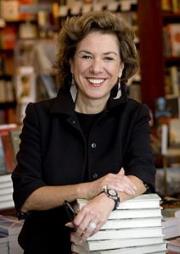 Publishing Talks began as a series of conversations with book industry professionals and others involved in media and technology, mostly talking about the future of publishing, books, and culture. I’ve spent time talking with people in the book industry about how publishing is evolving in the context of technology, culture, and economics.
Publishing Talks began as a series of conversations with book industry professionals and others involved in media and technology, mostly talking about the future of publishing, books, and culture. I’ve spent time talking with people in the book industry about how publishing is evolving in the context of technology, culture, and economics.
Some time ago, this series broadened to include conversations that go beyond the future of publishing. In an effort to document the literary world, I’ve talked with a variety of editors, publishers, booksellers, and others who have been innovators and leaders in independent publishing in the past and in the present.
These conversations have been inspirational to me on many levels. I have gotten to speak with visionaries and entrepreneurs, as well as editors and publishers who have influenced and changed contemporary literature and culture. I’ve also had the opportunity to speak with a number of friends and colleagues I have known over the many years I have been in the book business.
Bookstores have been an essential part of my entire life, even from early childhood, one benefit of growing up with a writer as father. Independent bookselling thrived from the late seventies into the late 1990’s, no doubt reflecting the Baby Boomer generation’s enthusiasm for books and ideas. The last twenty or more years have been very different, and now there are far fewer communities that support bookstores than at anytime in the past fifty years. Bookstores (along with public libraries) are a crucial element of a healthy culture, far more valuable than their size and scope would suggest. Local communities benefit from the presence of bookstores in many ways, and literary culture needs them too, as visible representations of a reading culture. Ideas grow and spread from books, but culture is also built around physically being present with one another.
So it is important for us to find ways as readers and literary citizens, to support bookstores, and it is equally important for booksellers to locate themselves, create and support communities around their stores, to support their workers and to make themselves meaningful enough to be thrive, despite the challenges of being small businesses in a mass-oriented consumer culture.
There are quite a few examples of booksellers who have made just such an impact, and their experiences and ideas are important for all of us to share and understand. It has been a particular pleasure for me to have known and worked with Roxanne Coady, the founder and owner of the exceptional R.J. Julia Booksellers, in Madison, Connecticut. We first met when Roxanne came to Connecticut to establish her new business after pursuing a successful career as a CPA in New York City. Over the years, I have spent many hours browsing their shelves, attending author events, and enjoying the cafe.
R.J. Julia has thrived during the period when local bookselling has faced an array of challenges, first from chain bookstores, then from Amazon and the rise of online retailing, and of course most recently, the pandemic. Throughout this time, Roxanne and her staff have innovated on many levels, including creating a drive-by pickup window for busy parents, putting on over 300 events a year (some of which are with celebrity authors), establishing an active email newsletter, providing online sales with speedy service, podcasting, and building an active book club. Throughout, the emphasis on community, care for staff as individuals, and listening to customers have been paramount characteristics of the enterprise. There is a bit of practical magic at work there, I think.
After more than 30 years of hard work and success, it’s obvious that Roxanne has quite a bit to say about what it takes to be a successful bookseller, to be a locally based business, and to be a crucial part of literary culture. I believe that our conversation should be meaningful for anyone interested in the future success of bookstores and the importance of building a real literary culture within a society that does not put enough value on books, authors, writing.
We need more bookstores! Visit the R.J. Julia Bookseller website and sign up for their newsletter.
Podcast: Play in new window | Download
Publishing Talks: Interview with Angus Yuen-Killick of Red Comet Press
April 21, 2021 by David
Filed under Publishing History, PublishingTalks, The Future
 Publishing Talks began as a series of conversations with book industry professionals and others involved in media and technology, mostly about the future of publishing, books, and culture. I’ve spent time in conversation with people in and around the book industry talking about its evolution in the contexts of technology, culture, and economics.
Publishing Talks began as a series of conversations with book industry professionals and others involved in media and technology, mostly about the future of publishing, books, and culture. I’ve spent time in conversation with people in and around the book industry talking about its evolution in the contexts of technology, culture, and economics.
Later, this series broadened to include conversations that go beyond the future of publishing. In an effort to document the current and recent past of book publishing, I’ve talked with a variety of editors, publishers and others who have been innovators and leaders of all kinds, past and present.
These conversations have been inspirational to me on many levels. I have gotten to speak with visionaries and entrepreneurs, as well as editors and publishers who have influenced and changed contemporary literature and culture. I’ve also had the opportunity to speak with a number of friends and colleagues whose work has influenced my own.
One such person is Angus Yuen-Killick, whom I have known since the 1990s when he came to the US to set up an outpost for a small UK publisher I was working with at the time. I was immediately impressed with Angus’ energy, vision and intelligence and since then, he has gone on to have a great career in children’s book publishing, his true love in the book business.
After working for several larger children’s book publishers over many years, Angus has now founded his own publishing imprint, Red Comet Press, about which he says:
“This is the realization of a long-held dream. The past year has forced us to reevaluate our priorities and reflect on our future. Launching a new publishing company seemed at once a crazy proposition, but also the absolute right thing to do.
At Red Comet Press, we will focus on the craft of publishing and curating a list of hand-picked titles. We will shepherd them through the publishing process, from creator to reader, with care and attention to detail. When we acquired these first books, it was a sign. They are inventive, surprising, touching, and multi-layered—and they remind me, upon every reading, of the passion and creativity that drew me to this business in the first place.”
Angus was interviewed earlier this year in Publishers Weekly, where he said “When I first started in the business, I worked at a tiny poetry publishing company in the north of England. My dad was an editor there and I was exposed to every aspect of the publishing process. When I left Macmillan last year and was trying to figure out the next step in my career after 30 years in corporate publishing, I realized that my dream was returning to that model of shepherding a list of books from the beginning to the end. This felt like the right thing for me to do next.”
Angus has help from his husband, Michael Yuen-Killick, a talented graphic designer, who serves as creative director for Red Comet, and a raft of friends and associates drawn from his many years of publishing. During his more than thirty years in book publishing, Angus has worked in key roles at various houses, including Macmillan, Penguin, Disney, and DK. I doubt there is anyone in children’s book publishing he does not know; he is widely respected and admired by his colleagues, and by many authors and illustrators as well.
It is always stimulating and fun for me to speak with Angus, so having him as a guest here is a special pleasure. If you are interested in the particular challenges of children’s book publishing, you will learn a great deal from Angus even from this brief interview. His knowledge and experience is unmatched. His enthusiasm and intelligence are often inspirational. And the books he publishes at Red Comet are going to be fantastic too. I am really looking forward to seeing his first list of books later this year.
Podcast: Play in new window | Download
Publishing Talks: Interview with Kyle Schlesinger of Cuneiform Press
April 5, 2021 by David
Filed under Publishing History, PublishingTalks
 Publishing Talks began as a series of conversations with book industry professionals and others involved in media and technology, mostly talking about the future of publishing, books, and culture. I’ve spent time talking with people in the book industry about how publishing is evolving in the context of technology, culture, and economics.
Publishing Talks began as a series of conversations with book industry professionals and others involved in media and technology, mostly talking about the future of publishing, books, and culture. I’ve spent time talking with people in the book industry about how publishing is evolving in the context of technology, culture, and economics.
Later this series broadened to include talks and interviews that go beyond the future of publishing. In an effort to document the literary world, I’ve talked with a variety of editors, publishers and others who have been innovators and leaders in independent publishing in the past, and into the present.
These conversations have been inspirational to me on many levels. I have gotten to speak with visionaries and entrepreneurs, as well as editors and publishers who have influenced and changed contemporary literature and culture. I started out in independent publishing, and early on learned how to set type by hand and operate mechanically operated printing presses that were even then becoming obsolete. I was never a very good printer and admire the poets and editors who have taken up the mantle of what is known as fine press printing to produce books that are artistically innovative and at times handmade.
Kyle Schlesinger is a poet and independent publisher whose work I have long admired. His press, Cuneiform (“Poetry, Typography and Artists’ Books) has established an incredible body of work since he issued his first book in 2000, Luisa Giugliano’s Chapter in a Day Finch Journal, published in Buffalo while Kyle was a student in the Poetics Program at SUNY, where he studied with Robert Creeley, Susan Howe, and Charles Bernstein.
Kyle first discovered the idea of printing through Will Hamlin, a Black Mountain College alumnus, while he was studying at Goddard College. He learned to print first in Vermont on an 1889 Prouty platen press with metal type. As he says on the Cuneiform site:
“We printed the literary review for Goddard College, instructions for using a compost toilet, Gertrude Stein stationery, and a few short poems. I remember building up the letters of William Carlos Williams’ “A poem is a small (or large) machine made of words” early on.”
This early experience quite evidently sent Kyle on the path to becoming a fine printer and book designer, and the hand work well suited to his personal design views, as he has gone on to produce a range of excellent writing expressed through fine design and outstanding creativity in book production.
After he left Buffalo, Kyle moved to Austin, Texas, where Cuneiform is now based. He teaches at the University of Houston, Victoria. Cuneiform produces books of poetry, artists’ books and even scholarly works, using letterpress and offset printing. Kyle and I had a great conversation earlier this spring. When it is possible to travel again, I am looking forward to visiting Cuneiform and seeing Kyle and the great Vandercook 219 proof press he runs in his shop in Austin.
Kyle and I share a number of connections, including poets and old friends, Kit Robinson, Steve Benson, and Kyle printed for years on a press he got from another old friend, Michael Waltuch, as well as a shared interest in Black Mountain College and its many amazing poets, artists and craftspeople. It’s inspiring to see his work, that carries forward the meaningful traditions of poets in collaboration with artists in the making of books. We had a wide ranging conversation about his work, past, present, and future.
Visit the Cuneiform Press website – do consider buying some books or subscribing or even donating, as Cuneiform is a 501 (c)3 nonprofit, donations are tax-deductible!
Podcast: Play in new window | Download
Publishing Talks: Interview with Arthur Attwell
February 2, 2021 by David
Filed under Ebooks and Digital Publishing, PublishingTalks, Technology
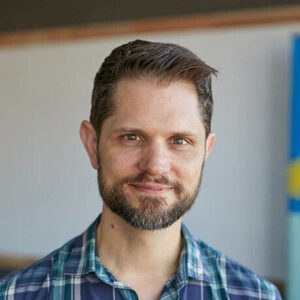 Publishing Talks began as a series of conversations with book industry professionals and others involved in media and technology, mostly talking about the future of publishing, books, and culture. I’ve spent time talking with people in the book industry about how publishing is evolving in the context of technology, culture, and economics.
Publishing Talks began as a series of conversations with book industry professionals and others involved in media and technology, mostly talking about the future of publishing, books, and culture. I’ve spent time talking with people in the book industry about how publishing is evolving in the context of technology, culture, and economics.
Some time back, this series broadened to include conversations that go beyond the future of publishing. In an effort to document the literary world, I’ve talked with a variety of editors, publishers and others who have been innovators and leaders in independent publishing in the past and into the present.
These conversations have been inspirational to me on many levels. I have gotten to speak with visionaries and entrepreneurs, as well as editors and publishers who have influenced and changed contemporary literature and culture.
Today’s guest is another such special individual. Arthur Attwell, who lives in Capetown, South Africa, got his start in publishing working for Oxford University Press as an editor. Impatient with the inefficiencies of publishing, he left to start up his current venture with some collaborators, Electric Book Works, which has been building books since 2006 that are active in multiple formats and versions, from beautifully produced print books to well fashioned ebooks to websites that express the book form in new ways.
In addition to the work he has done with Electric Book Works, this energetic entrepreneur has co-created an impactful health care information project, Bettercare, which has created and distributed healthcare learning materials to thousands of practitioners and consumers all over Africa. Although this project, entirely volunteer run, has had to cut back on its activities because of the pandemic, its impact continues with part timers and reduced capabilities.
Perhaps the most exciting efforts I have learned about recently is yet another Attwell project, Book Dash. Arthur and his partners created (and have since carefully refined) a process that assembles teams of book professionals to create and publish children’s books, and which also the raises money and support needed for the printing and distribution of thousands of books across Africa, with the stated goal that every child should own 100 books by the time they are five years old! The Book Dash process was built as an intensive one day effort, gathering teams in person, but has quickly adapted to a virtual model, enabling contributors to participate from multiple physical locations. They have made some really terrific books using this process and Book Dash has now distributed over one million books to children in Africa.
With the time difference between us, arranging this talk required bit of organizing, but we were able to speak recently by Skype. My original goal was simply to give Arthur an opportunity to talk about Book Dash. But we ended up having a much wider conversation on a range of topics, including distributed print on demand printing, a dream concept we both have explored, and much more. I suspect we will talk further in the necessary follow up conversation I hope to have with him as there are so many exciting ideas to discuss.
For now, I hope you will enjoy listening to Arthur Attwell as much as I did.
Arthur’s “On Transit” Talk
Podcast: Play in new window | Download
Publishing Talks: David Wilk Interviews Howard Junker about Zyzzyva
June 30, 2020 by David
Filed under Publishing History
 Publishing Talks began as a series of conversations with book industry professionals and others involved in media and technology, mostly talking about the future of publishing, books, and culture. I’ve spent time talking with people in the book industry about how publishing is evolving in the context of technology, culture, and economics.
Publishing Talks began as a series of conversations with book industry professionals and others involved in media and technology, mostly talking about the future of publishing, books, and culture. I’ve spent time talking with people in the book industry about how publishing is evolving in the context of technology, culture, and economics.
Some time back, this series broadened to include conversations that go beyond the future of publishing. In an effort to document the literary world, I’ve talked with a variety of editors, publishers and others who have been innovators and leaders in independent publishing in the past and into the present.
One of my favorite lines of exploration for Publishing Talks has been a series of conversations with editors and publishers of independent presses and literary magazines. These enterprises are at the core of literary culture. They bring new voices to light, tap into the always changing literary culture, and bring it forward to readers and importantly, to other writers as well.
One of the most important literary magazines of the late twentieth and early twenty first century is Zyzzyva: The Journal of West Coast Writers & Artists, founded by Howard Junker in San Francisco as a purely West Coast platform in 1985. Howard and I knew each other in the eighties and nineties when I was involved in literary magazine and press distribution. I’ve always thought highly of Zyzzyva, its look and feel and the breadth and scope of its literary vision. Having a chance to talk for awhile with Howard about the magazine and his own literary output since leaving the magazine in 2010 was a welcome pleasure. He has a lot to say on alot of subjects. I truly enjoyed our conversation and hope you will find it as interesting and rewarding as I did.
Howard Junker was born in Port Washington, NY and grew up in Chappaqua, NY. He attended Amherst, Stanford, and the University of San Francisco. Junker has written for many magazines, including Architectural Digest, Art in America, Artforum, Esquire, Film Comment, Film Quarterly, Harper’s Bazaar, The Nation, The New Republic, New York, Newsweek, Playboy, Rolling Stone, The Village Voice, and Vogue.
He has also worked as a documentary filmmaker, television producer, construction carpenter, junior high school science teacher, fondue cook, P.R. flack, and technical editor.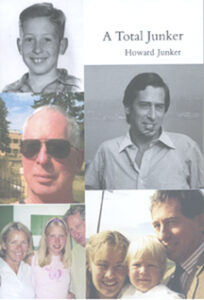
He founded Zyzzyva in 1985, and edited 90 issues before he retired at the end of 2010. He also edited five anthologies of work from the magazine, including AutoBioDiversity, as well as four Zyzzyva first novels and three Zyzzyva first collections of poems. There is much more about Howard to be found at his website here.
Photo above by Dennis Letbetter.
Podcast: Play in new window | Download
Publishing Talks: David Wilk interviews Mary Gannon of CLMP
May 30, 2020 by David
Filed under Publishing History, PublishingTalks, The Future
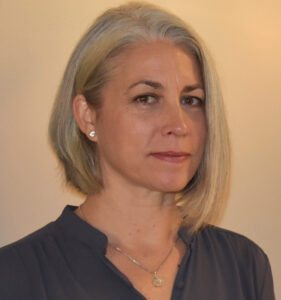 Publishing Talks began as a series of conversations with book industry professionals and others involved in media and technology, mostly talking about the future of publishing, books, and culture. As every media business continues to experience disruption and change, I’ve spent time talking with some of the people involved in our industry about how publishing might evolve as it is affected by technology and the larger context of culture and economics.
Publishing Talks began as a series of conversations with book industry professionals and others involved in media and technology, mostly talking about the future of publishing, books, and culture. As every media business continues to experience disruption and change, I’ve spent time talking with some of the people involved in our industry about how publishing might evolve as it is affected by technology and the larger context of culture and economics.
Some time back, this series broadened to include conversations that go beyond the future of publishing. In an effort to document the literary world, I’ve talked with a variety of editors, publishers and arts professionals who have been innovators and leaders in independent publishing in the past and the present, and continue to explore the ebb and flow of writing, books, and publishing in all sorts of forms and formats, as change continues to be the one constant we can count on.
Mary Gannon is the Executive Director of the Community of Literary Magazines and Presses, a now more than fifty-year-old nonprofit that is the primary organization in the US supporting the literary publishing community. There are hundreds of publications of all sizes that benefit from CLMP’s work, some well-established, others that are start-ups, and many others in various stages of growth and development. Some have institutional support, while the majority are supported only by the work of volunteers and readers.
Mary is herself a poet, and has worked in the literary community for many years. She well understands the struggles and needs of the community she serves. Before joining CLMP in 2018, she was the Associate Director and Director of Content for the Academy of American Poets, and before that she was the Editorial Director of Poets & Writers, the country’s largest nonprofit organization serving poets and literary writers.
Mary has published numerous articles about publishing and the literary field, as well as book reviews in a variety of journals. With her husband, Poets & Writers Magazine Editor-in-Chief Kevin Larimer, she wrote The Poets & Writers Complete Guide to Being a Writer, published by Avid Reader Press/Simon & Schuster April, 2020.
I’ve wanted to talk to Mary for some time about the state of the independent literary community. Now, with the COVID pandemic having such an impact, especially so on the arts (to the point of crisis for many) it’s an important time for a conversation about the current state and future prospects of literary publishing.
CLMP was founded in 1967 by writers and editors, including Russell Banks (whom I interviewed in 2018.) It offers a range of services and funding to magazines and literary publishers. Visit the CLMP website for more information or to make a donation in support of its vital work to support independent literary culture.
Disclosure: I am currently proud to be a member of the board of trustees of CLMP.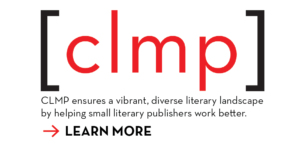
Podcast: Play in new window | Download
Publishing Talks: David Wilk interviews Brian Birnbaum of Dead Rabbits
December 31, 2019 by David
Filed under PublishingTalks, The Future
 Publishing Talks began as a series of conversations with book industry professionals and others involved in media and technology, mostly talking about the future of publishing, books, and culture. As every media business continues to experience disruption and change, I’ve spent time talking with some of the people involved in our industry about how publishing might evolve as it is affected by technology and the larger context of culture and economics.
Publishing Talks began as a series of conversations with book industry professionals and others involved in media and technology, mostly talking about the future of publishing, books, and culture. As every media business continues to experience disruption and change, I’ve spent time talking with some of the people involved in our industry about how publishing might evolve as it is affected by technology and the larger context of culture and economics.
Some time back, this interview series broadened to include conversations that go beyond the future of publishing. In an effort to document the literary world, I’ve talked with a variety of editors and publishers who have been innovators and leaders in independent publishing in the past and the present, and continue to explore the ebb and flow of writing, books, and publishing in all sorts of forms and formats, as change continues to be the one constant we can count on.
There are many reasons to establish an independent literary venture, but usually the urge is based in the most basic impulse to publish, i.e. make public, work that matters, either to an individual, or a group of writers clustered around a particular geography or literary pursuit. Dead Rabbits is one such new venture. Its founders began by creating a poetry reading in a place that was underserved. The Dead Rabbits Reading Series was founded in 2014 by Devin Kelly (Sarah Lawrence MFA ’15), Katie Longofono (Sarah Lawrence MFA ’14), and Katie Rainey (Sarah Lawrence MFA ’14) as a way of providing a place for an emerging young New York City literary scene to exist and thrive in Upper Manhattan.
Out of that extremely successful undertaking – with a long list of readers with whom I confess I was not familiar – Katie Rainey, Jonathan Lee Kay and Brian Birnbaum subsequently founded Dead Rabbits Books (“Books that Matter”). Their first publication is Brian Birnbaum’s novel, Emerald City, with several more books planned and ambitions to establish a long term self sustaining publishing venture.
I’ve talked to many folks in publishing who have spent years at their work and thought it would be a useful counterpoint to talk to someone new, on the other end of the spectrum, is just beginning the struggle to publish and reach readers in new ways that have continued to emerge over the past few years.
Dead Rabbits is emblematic of a new generation of writers and editors that is in many ways wrestling with the same challenges that have faced every generation before them, but the current environment is also very different than it has been at any time in the past. Social media creates unmatched opportunities for communication and at the same time a vast array of issues for any new enterprise trying to be discovered. It seems there are more poets and independent presses than ever, all competing for an audience of readers for whom poetry is yet another option for consumption alongside every other media form. Which makes this a very interesting time indeed. Good luck to Dead Rabbits, (in all their various literary ventures) – this is a group of young literary adventurers who seem to have some very good ideas as well as access to some very good writing. Anyone interested in the current literary scene should listen to this podcast.
Podcast: Play in new window | Download

